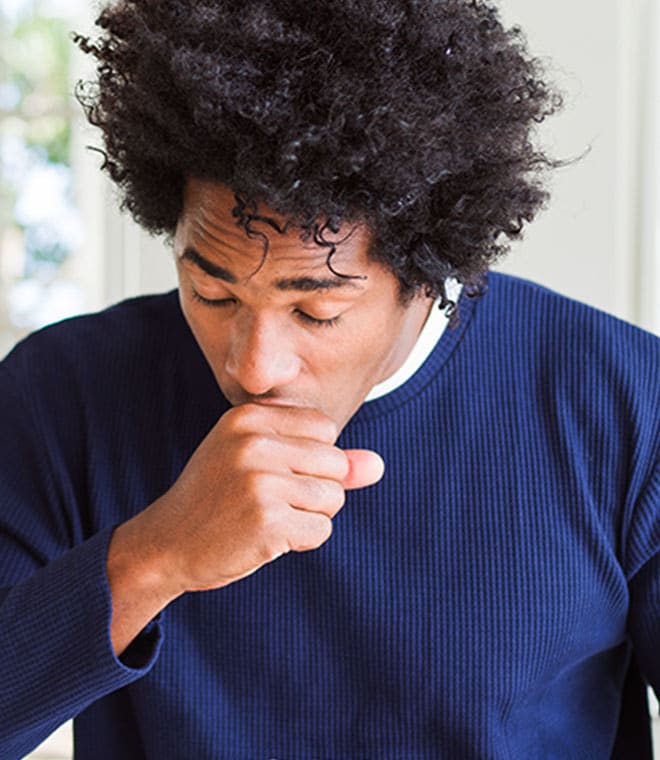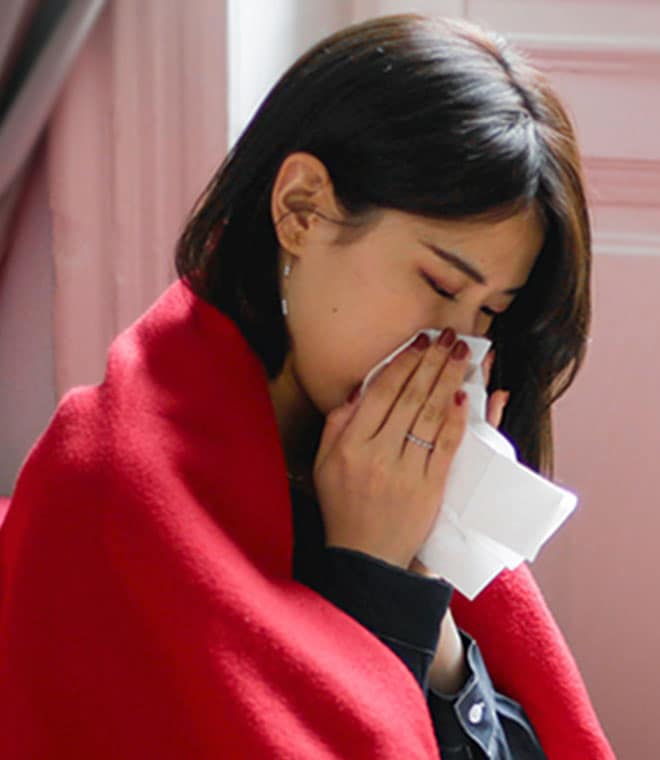Health
How to avoid common fall allergies
By Sanjay “Jay” Patel, DO | Allergy & Immunology Aug 19, 2024 • 4 min
Warmer temperatures and other changes in weather patterns have led to a rise in seasonal allergy symptoms, and not just in the spring and summer. Fall allergies are also common, but following these tips can help you reduce the risk of developing symptoms.
1. Know your allergy triggers
If you experience allergy symptoms in the fall, getting tested for allergies can help you determine what causes your symptoms. Allergy testing can involve skin tests and blood work. Once you know which allergens trigger your symptoms, you can develop strategies to avoid them.
Pollen from the following weeds and plants are among the most common causes of fall allergies:
- Ragweed
- Cocklebur
- Lamb’s quarter
- Mugwort
- Nettle
- Russian thistle
- Sagebrush
- Tumbleweed
When chilly fall weather arrives in some areas, many people begin spending more time inside, which can lead to the onset or worsening of indoor allergies. In other climates, the fall weather is enjoyable, and people and pets can track outdoor allergens indoors after being outside. Common causes of indoor allergies include:
- Cockroaches
- Dust mites
- Molds
- Pet dander, urine and saliva
2. Prioritize indoor air quality
Whether indoor or outdoor allergens trigger your symptoms, improving air quality in your home can help reduce your exposure. Keep your windows closed throughout the day and consider using a high-efficiency particulate air (HEPA) filtration system, which can remove allergens from the air. Running a dehumidifier and exhaust fans can promote drier conditions to discourage mold growth.
3. Monitor pollen counts
Daily pollen counts provide a simple way to determine when you will most likely experience fall allergy symptoms. When pollen counts are high, stay indoors as much as possible and keep your windows closed.
4. Use caution when spending time outdoors
Even on low pollen count days, taking some precautions can lower your chances of developing allergy symptoms. Wear a pollen mask, protective glasses and gardening gloves when you’re doing yard work in areas where weeds grow.
Remove your clothing as soon as you come inside and shower, if possible. If you can’t bathe right away, wash your hands thoroughly. Have everyone remove their shoes by the door throughout the fall to avoid tracking allergens through your home.
5. Establish a regular cleaning routine
Regularly cleaning your home can reduce the number of allergens in your environment. The following tips may be helpful:
- Vacuum often
- Mop hard floors regularly
- Wipe down surfaces
- Launder bedding weekly
- Clean sinks, showers and tubs often
- Empty and clean drip pans in appliances frequently
- Wash out your trash cans periodically
6. Explore your treatment options
If allergy symptoms persist, talk to your healthcare provider about treatment options. Over-the-counter allergy medications are available. Prescription oral medications and nasal sprays can also help alleviate symptoms and help you manage fall allergies. Immunotherapy injections may also help reduce your risk of developing symptoms in the future. Your healthcare provider can recommend the best treatments based on what you’re allergic to, the severity of your symptoms and your overall health.
Updated August 2024.
Sources:
- https://www.aamc.org/news/do-seasonal-allergies-seem-be-getting-worse-blame-climate-change
- https://health.clevelandclinic.org/remedies-for-fall-allergies
- https://acaai.org/news/autumn-is-coming-get-ahead-of-allergy-symptoms-now/
- https://www.lung.org/blog/fall-allergy-doctor-tips
- https://www.aaaai.org/tools-for-the-public/conditions-library/allergies/indoor-allergens-ttr
- https://acaai.org/allergies/management-treatment/living-with-allergies/air-filters/
- https://acaai.org/news/lowest-pollen-counts-occur-between-400-a-m-and-noon/
- https://www.aaaai.org/tools-for-the-public/conditions-library/allergies/cleaning-tips-for-allergy-and-asthma-sufferers
- https://www.aaaai.org/tools-for-the-public/conditions-library/allergies/outdoor-allergens-ttr
- https://www.mayoclinic.org/diseases-conditions/hay-fever/in-depth/seasonal-allergies/art-20048343



